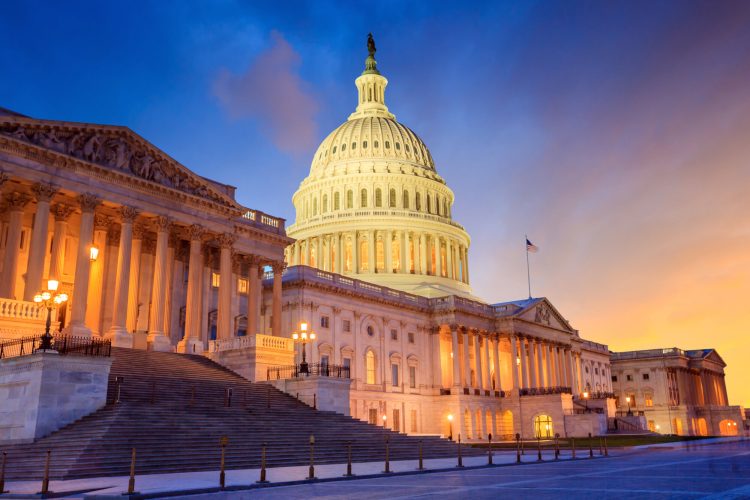On the latest Facing the Future, I was joined by Gene Steuerle, a fellow at the Urban Institute and Concord Coalition Policy Director, Tori Gorman. We discussed when pay-fors should be considered for economic-relief packages passed by Congress, when policymakers should address long-term budget deficits and what new aid packages elected leaders are exploring.
[Note: In light of current circumstances, The Concord Coalition is posting additional online content. Portions of this week’s Facing the Future can be seen in the video clips posted below.]
Gorman said that, after several fits and starts, Congress has finally come to an agreement on a follow-up to the CARES Act that provides additional economic relief. The package has an overall, top-line cost of $483 billion.
“The good news for taxpayers is it does appear to be a relatively clean bill, in that it goes back and refills some of the buckets that were in the original CARES Act,” she said.
“New to this bill is about $25 billion for COVID-19 testing,” Gorman said. But a surprising exclusion from this new legislation is money for state and local governments.
Gorman said that right now, elected leaders are not including pay-for mechanisms in proposed relief packages or openly discussing ways to pay for new spending in the legislation. “Most of the conversations that you hear are from budget experts off the Hill, like Gene Steuerle, that are gently nudging and gently reminding Congress,” she said.
Such nudges acknowledge that Congressional action to help people and the economy is needed, but they also have a “when this is over” message. The nation will eventually need to turn its attention to not only paying down the debt run up during the pandemic but also addressing the long-term budget challenges that existed beforehand.
Steuerle said, “Clearly, amidst this current pandemic, almost everyone has agreed that we need to do a lot to get money out there, to create liquidity in the economy, to give income support to people, to try to figure out ways to get people to retain jobs.”
But Steuerle sees a catch.
“Economically, the failure to identify how we’re going to pay for these things long term, not necessarily up front, but long term, really threatens the economy into the future,” he said. “It threatens our ability to enact a fourth, fifth or sixth stimulus bill even in this current recession.”
“What’s very unique to the modern era, is that we have the long-run, huge increases in deficits built into the budget,” he added. “That long-term issue is sitting right next to that short-term issue, and when people debate the deficit … they often confuse the two issues.”
You can read more of Steuerle’s perspective in his recent opinion piece for the Tax Policy Center.
Hear more on Facing the Future. I host the program each week on WKXL, NHTalkRadio.com (N.H.), and it is also available via podcast. Join me and my guests as we discuss issues relating to national fiscal policy with budget experts, industry leaders and elected officials. Past broadcasts are available here. You can subscribe to the podcast on Spotify, iTunes, Google Play Music or with an RSS feed. And follow Facing the Future on Facebook.
Continue Reading










